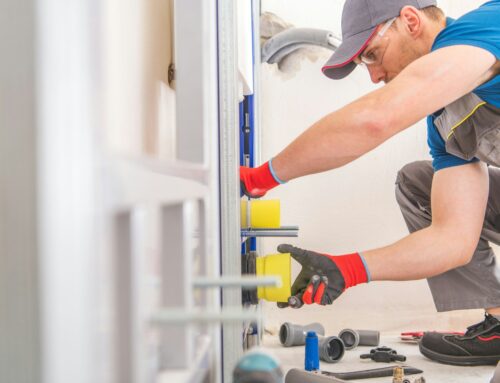Selling or buying a commercial HVAC business is a significant financial transaction that requires scrutiny of financial records. Whether you’re a seller preparing for a transition or a buyer looking for a promising investment, you will want to understand the financial red flags to watch out for.
If you overlook key financial inconsistencies, it can lead to unforeseen liabilities, valuation disputes, or even failed transactions. Working with experienced commercial HVAC business brokers can help ensure a smooth process, but it’s also important to know what to watch out for yourself and make sure you are making the best choice for your business.
1. Revenue Trends That Don’t Add Up
Revenue trends are among the first things you should analyze when conducting an HVAC business sale. A steady or increasing revenue stream often indicates a stable business, while erratic fluctuations could signal underlying problems. You should expect seasonal dips in HVAC services, but unexplained declines or inconsistent revenue streams raise concerns.
If revenue significantly increased just before the sale, investigate whether this growth is sustainable or if it comes from aggressive discounting or one-time contracts designed to inflate the numbers.
Likewise, a sudden drop in sales might indicate lost customers, poor service reputation, or operational inefficiencies.
2. Discrepancies in Accounts Receivable and Payable
A strong HVAC business should have well-managed accounts receivable (AR) and accounts payable (AP). A significant amount of overdue invoices could mean cash flow issues or an inability to collect payments from customers. On the other hand, high accounts payable balances may indicate that the business is struggling to meet its financial obligations.
Buyers should request aging reports for both AR and AP to identify delayed payment patterns. If customers consistently take a long time to pay, it may suggest weak credit policies or poor client relationships, which can impact future financial stability.
3. Unrecorded or Inconsistent Expenses
One of the most common financial red flags in HVAC business sales is the misrepresentation of expenses. Some business owners may attempt to reduce their taxable income by running personal expenses through the company. While this is common in small businesses, it creates a distorted financial picture that complicates valuation.
A thorough review of expense reports should reveal any irregularities, such as inflated vendor payments, excessive discretionary spending, or misclassified costs. A reputable commercial HVAC business broker will help ensure that financial records accurately reflect operational expenses, preventing future disputes between buyers and sellers.
4. Overreliance on a Few Key Customers
You need a diversified customer base for long-term business stability. If an HVAC business generates a substantial percentage of its revenue from just a handful of clients, it poses a significant risk to potential buyers. Losing even one of these clients after the sale could dramatically impact profit.
Buyers should review customer contracts, recurring revenue streams, and historical client retention rates. If the business relies too much on a single source of income, it may not be as financially secure as it appears on paper.
5. Employee Compensation and Payroll Concerns
One of the biggest challenges in the commercial HVAC business sales is workforce retention. As a buyer, you should examine payroll records to ensure that employees get a fair wage and that there are no inconsistencies. Common red flags include:
- Unusually high pay for owners or family members compared to industry norms.
- Unreported or irregular cash payments could indicate tax compliance issues.
- A workforce that is heavily reliant on independent contractors without proper documentation.
A stable payroll system is a must-have, as losing key employees post-sale can disrupt operations and affect service quality. Understanding how salaries, benefits, and workforce structures align with industry standards will keep your employees happy and prevent any nasty surprises after completing the transaction.
6. Questionable Inventory and Equipment Valuations
HVAC businesses typically own substantial inventory and equipment, which factor into the business valuation. However, inflated equipment values or out-of-date inventory records can create misleading financials. If buying, you should verify asset valuations by:
- Conducting an independent appraisal of HVAC tools, vehicles, and machinery.
- Reviewing depreciation schedules to ensure assets are accurate and fully accounted for.
- Checking if inventory includes outdated or non-functional equipment that may require replacement.
As a seller, you should prepare to provide detailed records of inventory and asset conditions to support your valuation claims.
7. Unclear Debt and Liabilities
Before finalizing any transaction, both buyer and seller should clearly understand the business’s debt obligations. The seller should disclose any outstanding loans, vendor credit lines, and potential legal disputes. Buyers should request documentation on the following:
- Existing business loans and repayment terms.
- Outstanding liens against business assets.
- Pending legal claims that could result in financial penalties.
A failure to disclose liabilities can result in post-sale legal battles.
Bonus Tip: Tax Records and Compliance Issues
Tax compliance is another key area of concern when buying an HVAC business. Discrepancies in tax filings or unresolved tax liabilities can pose a massive buyer risk. Warning signs include:
- Large year-over-year variations in reported income.
- Frequent IRS audits or tax disputes.
- Late or missing payroll tax payments.
Sellers should ensure their tax filings are up-to-date and accurately reflect the business’s financial health. Buyers should request at least three to five years of tax returns to analyze consistency and avoid potential compliance risks.
Protect Yourself
Selling or acquiring an HVAC business requires a detailed financial evaluation to identify potential risks. Understanding these red flags will help sellers prepare for a smoother sale while ensuring buyers make informed investment decisions.
If you’re considering selling your business or want to ensure a transaction proceeds without financial pitfalls, partnering with an experienced HVAC broker is the best approach. With the proper guidance, you can confidently navigate the commercial HVAC business sales process and secure a deal that benefits both parties.
FAQs
1. What financial documents should I review before buying an HVAC business?
Buyers should review profit and loss statements, balance sheets, tax returns, and accounts receivable/payable reports.
2. How do I know if an HVAC business is overvalued?
Look for inflated revenue figures, aggressive depreciation of assets, or sudden sales spikes before listing.
3. What role does cash flow play in HVAC business valuation?
Cash flow determines a company’s ability to cover expenses and maintain profitability, making it a key valuation factor.
4. How can I verify a business’s revenue claims?
Request customer contracts, bank statements, and vendor invoices to confirm income streams.
5. What are some common signs of hidden liabilities in an HVAC business sale?
Unreported debts, unresolved tax disputes, and outstanding legal claims are key warning signs.
6. Why is customer concentration a risk factor?
A business heavily reliant on a few clients is at risk if those clients leave post-sale.
7. How do I assess employee retention risks?
Review payroll records, employee contracts, and workplace satisfaction metrics.
8. Should I be concerned about unpaid invoices?
Yes, excessive overdue invoices indicate collection issues and potential cash flow problems.
9. Why should equipment valuations be verified?
Overstated asset values can distort business valuation and lead to unnecessary expenses.
10. How can a business broker help with an HVAC business sale?
Brokers provide valuation expertise, marketing, and negotiation support to ensure a smooth transaction.







